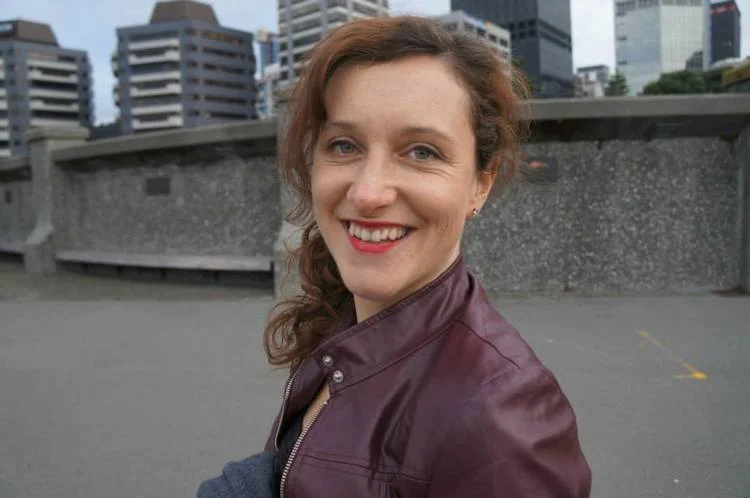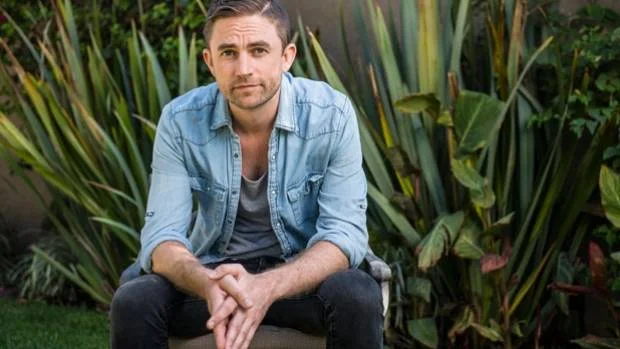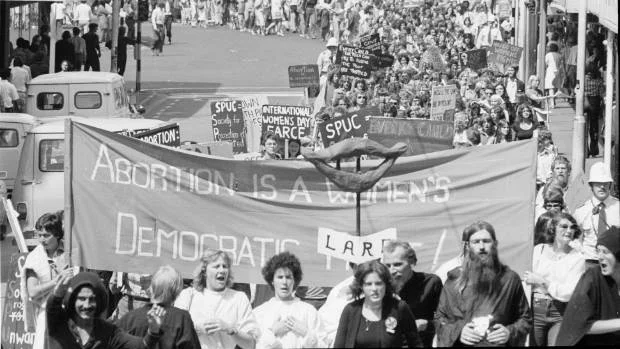Joel Little: The man behind Lorde / Sunday magazine
Joel Little's favourite song was penned by a six-year-old.
Following on from the success of household smash Sunshine Terror, the equally catchy but no less frightening A Night to Fight, by pint-sized songwriter Lila Little, has just been released into the hallways of her home in a leafy suburb of Los Angeles.
"The lyrics are like: 'Tonight is the night, the night to fight. We're gonna fight tonight,' then it goes into, 'I'm gonna fight you Ruby,' who's her mate," says Little.
"I guess because she sees me doing it, she's like, 'Oh, that looks like fun.' So she comes up with her little ideas too. But they're all really dark." Gemma, Little's wife, laughs. "I think she thinks she's going to be famous when she gets older, just naturally, because that's what you do."
In the past two years, Lila's father has achieved more than most. In the simplified version, he's co-written a smash hit album alongside global superstar Lorde, won a Grammy, and in the process created a name for himself that has American recording artists knocking at the door of his new home.
Little moved to the States with Gemma and daughters Lila and three-year-old Emmie four months ago. In the year since the release of Lorde's debut album Pure Heroine, the 31-year-old's production skills had become such hot property in the US that the travel was ridiculous.
"We knew we were going to miss our friends and stuff but it felt like the next step, I guess," says Little.
"It was kind of like an adventure for the family and I'm here all the time anyway, so it's better for the whole family to be here rather than me being this absentee father."
They've gone from their home in Titirangi, West Auckland, to a leafy suburb in the Hollywood Hills, with a view over Mulholland Drive.
Travel is no longer a problem – Little either works with artists from his home studio, or in one of the many spaces downtown. But the shift is not without its risks.
"One of the main things I was apprehensive about with coming over here was that my kids would potentially get American accents. I was like, 'Noooo!' But we may not be here forever; it depends how [everything] goes."
The Littles are back in New Zealand on honeymoon – Joel and Gemma tied the knot in Hawaii on the way home. She wore a simple V-neck gown in front of a handful of friends and family, and the two girls were bridesmaids. (Little asked Gemma to marry him at a farewell party before they moved to the US: "We've got two children and have been together for nine years so I was fairly confident she liked me.")
Their New Zealand honeymoon coincides with another award haul for Little; he picked up two APRA silver scroll awards for Most Performed Work in New Zealand for Lorde's Team, and Most Performed Work Internationally for Royals. This follows best-producer and best-engineer recognition for Pure Heroine at the Vodafone New Zealand Music Awards.
How much do these awards mean, after a Grammy? "They are still very, very important to me," Little says.
"When we were growing up and we were in [New Zealand band] Goodnight Nurse and starting to think about achieving things in music, it was always the silver scrolls and the Tuis that were the pinnacle. It will always have that weight to me, because I can remember that feeling of wanting to be at that level."
Let's take a look back at Goodnight Nurse. If you were a child of the 90s, you might have been in the audience when the pop-punk group did a 19-week schools tour in 2004.
Little, then 21, wore pink and black nail polish. Their fans were mainly teenage girls.
"To be honest, we don't really get the whole pin-up thing, the screaming and everything," Little told a local newspaper at the time. "We're really just a bunch of geeks from Auckland who decided to start a band."
Little's long-term manager Ashley Page is more honest. "After they broke up, it took those guys a while to get over the 'Goodnight Nurse factor'. They weren't the coolest band."
But they were a hard-working band. Page, who was their manager at two labels – Festival Mushroom records, and then Warners Australasia when Festival Mushroom was bought out – had a lot of faith. "The guys had invested in themselves so heavily. They made a second album that I thought was one of the best in New Zealand for years. I thought it was going to blow them international.
"Joel and [bandmate] Jaden together had this incredible sense of melody and structure, and while they were writing pop punk songs they were also writing great pop songs."
The genesis for a lot of those tunes was in a sleepout behind Little's house in Dryden St, Grey Lynn, where he and Jaden Parkes began writing music while still at Western Springs College.
"We would just sit there and drink beers and write them into the night," Parkes says.
"We would write crappy pop punk songs, and then we got better. Joel was really good at writing songs so I learnt a lot from him. He couldn't really sing at the time but we were sort of sick of trying to find a singer, so he just sang."
For Little, it was his first foray into songwriting since an ill-fated experiment with a Vanilla Ice-inspired rap, aged 10, in a class taken by Kiwi writer Arthur Baysting.
"I went in and did one of my raps for the class and I had literally ripped off some Vanilla Ice lyrics and put them in my song. He was like, 'You can't really do that,' which was good songwriting advice."
Goodnight Nurse had a modicum of success, but after their second album it was mutually agreed none of them were really into pop-punk any more. Soon after, Page, Little and Parkes started up a record label named Dryden Street, opening Golden Age studios in Morningside. They began working on electro project Kids of 88, fronted by Jordan Arts and Goodnight Nurse guitarist Sam McCarthy.
Page saw Ella Yelich-O'Connor – Lorde – perform in Devonport around the same time as Scott Maclachlan, who would later become her manager. He set to work convincing Maclachlan that the young singer should work with Little.
Meanwhile, Little was working with seven-piece band The Peasants, who had won the 2011 Smokefree Rockquest. The lead singer in that band was Georgia Nott, who would soon form Broods with her brother Caleb.
About a year after he first pitched it, Page went back to Maclachlan with some demos of Little's work with Georgia. "I said: 'This is how he works with a young female songwriter, and this is how well he actually does it.' He finally agreed to put Lorde and Little together for a short session, and that [resulted in] Million Dollar Bills and Royals in the first two weeks."
Page, who has now worked with Little for more than a decade, says he is "the nicest person in music". In fact, the word 'nice' crops up repeatedly when talking to Little's associates.
"It makes us laugh at times," says Page, "but the fact is, he is so unassuming. And to this day he remains unaffected by what is going on around him, while growing in confidence.
"He's able to pick [from] the biggest artists in the world at the moment, and he's turned a lot of them down. It's been a great team around him. I think that stability is something that he carries around with him, and loyalty as well."
American artists are enamoured with his sound, Page says. "They talk about the first time they heard Royals on the radio: it doesn't fit a format, it sounds like it shouldn't fit on American radio but it does. They say, 'It's like Joel has found this ingredient for something we want but haven't been able to get to.'"
It takes Little a couple of days working with each artist to figure out what they're like as a musician and what they're trying to say.
"There's not really one specific way of doing it," he says. "I mainly base it around their voice, and whether I think I can bring something to the project. There are a lot of people whose music I love, but I don't see what I could do to benefit that person.
"There are other people I hear and I instantly know what I could do with it, or how I could make it better. Somebody with something unique to say is half the battle with making a cool song. It makes my job way easier."
Since Lorde, he has worked with Broods, Sam Smith, Danish singer Karen Marie Ørsted (better known as MØ), Swedish pop artist Elliphant, and has just finished recording with Ellie Goulding.
After winning the Grammy, there was a flash of anxiety, he says. "As winning awards goes, that's kind of as big as it gets. There was a week or so after that when I was like, 'Shit, where do you go from here.' But I think the times that I have done well are when that hasn't been at the front of my mind – it's when I've done what I thought was cool at the time. I guess those songs come from a better place, and when you're trying to concoct success, that's the wrong reason."
An article in The Guardian with the headline, The Secrets of Lorde's right-hand man, Joel Little, has a introduction describing him as a "producer-svengali", pulling the strings.
Little laughs. "I imagine a slightly sweaty, sleazy old dude with sort of combover hair that's long on the sides. Most of the artists will tell you I'm a pretty nice guy. I've tried to get rid of that stereotype, but there's nothing I can do about it."
And there's always an element of mystery to making a hit song, he says.
"Sometimes you'll have a feeling about a song, just a good feeling, but that doesn't necessarily mean that it's going to be massive. It just means there is something about it that will hopefully connect with people on some level.
"That's how I felt about Bridges by Broods, and that hasn't been a massive international smash. But I remember making that and going, 'Oh man, that's really cool.'"
Being the man behind the music suits Little just fine. A reluctant frontman, he can't imagine wanting to go back out and play himself. "I never really cared that much about that side of things, about being the centre of attention.
"Going on tour and having these crazy times with your best friends and doing music every day, that's what I enjoyed about it.
"But my favourite part was always making albums and writing songs and creating a body of work. These days, I get to put a different side of me into music, and there's definitely a part of me in the music I work on, but it's just that it's someone else's voice, and usually more their story that I've helped them along with."
It also means he can escape a lot of the media attention. In fact, he's so under the radar that at the APRA music awards in Brisbane, where he and Lorde won Outstanding International Achievement, the promotional image was a photograph of Lorde and Caleb Nott from Broods.
"[Ella's] the one that has to deal with it," says Little. "I don't have to, and I generally say no to most interviews because I feel like I don't need to be interviewed – I'm not really promoting myself and I'd rather be a fairly private person, for the most part.
"When it's based around being nominated for something, I'll do [interviews] because I'm appreciative, but when it's like, 'Can we have a chat to you about Lorde,' or something, I'm like, 'No,' because she's everywhere, and I don't need to be adding to that."
He's heard Royals a million times, but he doesn't think he'll ever get sick of it.
"There are never too many times – it's always cool. Every time I hear it, it's a good feeling knowing that you've had that impact, and that you've made something that's done what Royals has done.
"I guess that's the thing for me, to keep working with interesting people and making music that I want to put on and listen to after I'm done with it. Making music that I'm proud of."
When Little was packing to move to LA, he found a note his dad had written for him after his high school band, Bean Count, didn't make it to the regional finals of Smokefree Rockquest.
"Jaden and I were sitting there at the end of the night completely devastated. We couldn't believe we hadn't made it in. My dad wrote me this really nice letter saying, 'I've never seen you this cut up about anything in your life. This obviously really means a lot to you and I can tell because of how passionate you are that you're going to keep at it, and things are going to come of it.'
"I remember that meaning a lot, and it's pretty nice thing to know that I did keep at it, and it did work out."




